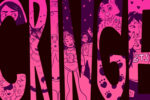Since the height of the COVID-19 pandemic, many people have been finding activities to enjoy in their spare time. Some of these have turned into creative outlets for those involved to find beauty in creative endeavors. What happens when someone’s unique creativity goes viral, and they end up taking special requests from people on TikTok wanting to buy the product of that hobby? That is when you cross the threshold from amateur to professional, and your hobby becomes a job.
The definition of “hobby” is as follows: an activity or interest pursued in pleasure or relaxation and not as a main occupation. Some might enjoy activities like crochet, woodworking or even cooking. Nonetheless, the main point of having a hobby is to find joy in what you’re doing rather than doing it because you want to excel at it or make money. Creativity can be something other than another revenue stream. Sure, some take the revenue route and make a pretty penny for it, but that path isn’t for everyone.
Some say having a hobby gives them a break from “the real world,” which can be true. As a busy college student holding four jobs, I value hobbies as a well-needed escape from my work environment. After finishing a shift, giving myself something creative—like doing a project with my Cricut or completing a series of coloring pages on my iPad—allows me to decompress from the day. I am in no way good at either of those activities. However, allowing myself to have a creative outlet gives me joy.
The Washington Post’s Erin Lowry tells us what monetizing your hobbies can turn into. According to Lowry , “As a recovering member of the constantly-side-hustling community, I can say confidently that respecting the sanctity of at least one or two hobbies for fulfillment does wonders for one’s mental health.” In other words, start a hobby to give yourself a creative outlet and strengthen your mental health, not to make money.
As Lowry mentioned, creativity is also great for one’s mental health. According to Diversus Health, a medical practice that specializes in mental health, “Expressing ourselves through creative and artistic activities can help to relieve stress and anxiety.” They also mention that creativity can help one “become more mindful and relaxed.” They further explain that being creative can slow down our minds, allowing us to give more care and slow down in order to mend ourselves.
Marian Bull shows us an insider perspective of what it means to lose a hobby to monetization. In “The Complicated Reality of Doing What You Love”, Bull explains how she went from a desk job as a copywriter to a ceramics artist. She goes on to say that after making a few things she found were good enough, she began posting photos of her work online and receiving commissions to sell her pieces to others.
Bull further goes onto tell the reader how ceramics can no longer be considered her hobby. She later says, “I assume I will sell my work until people stop buying it, both out of necessity and because it does bring me joy to make a silly little thing that someone will incorporate into the tableau of their home.” Even though her viral business was an incredible stroke of luck, she lost her hobby and morphed it into a full-time job.
So, how does one find a hobby? It can be as simple as discovering things you may be already interested in doing. Want to learn to cook? Take a cooking class. Have you thought about becoming avid runner? Hit the track and bust out a few laps. There are many things that a person already does which could be “hobby-ized,” but if you can’t think of any, here’s a few suggestions to get you started. When looking for hobbies, they can fall into two categories: challenging or mindless. Usually, mindless hobbies are ones you can do without challenging the brain to do anything. These hobbies are usually things like coloring, knitting or gardening. The hobbies that fall into the “challenging” category are meant to get the mind going. Hobbies in this category require a little more mental energy and give the brain a workout. These hobbies may include chess, crosswords or learning a new language.
The hobby you choose doesn’t matter as long as you can find some form of joy or relaxation from the daily grind. Finding enjoyable activities that give your brain a break—or get it going—can allow your creativity to flourish. After all, that is the point of having a hobby in the first place.

















Our hobbies are an important way to express our creativity and to explore who we are. They can also bring challenges, a sense of accomplishment, and an opportunity to connect with others. In fact, creativity is central to human activity and thought. It has been the driving force for all innovation throughout human history.